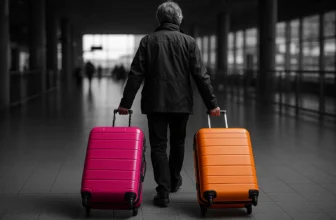
You’re sipping champagne in a marble bathroom overlooking the Taj Mahal. Room service just delivered truffle pasta to your suite. The bill? Just $47 for the night.
Sound impossible? I thought so too.
Until I discovered what hotels don’t want you to know about their pricing systems. Turns out, there’s a whole underground world of travel hackers who’ve figured out how to game the system – legally.
And no, this isn’t about collecting credit card points for the next decade. This is about understanding the psychological tricks and tech loopholes that can slash your hotel bills by 60-80% starting with your very next trip.
The Hotel Industry’s Dirty Little Secret
⚡ AI-Powered Price Changes
How Hotels Adjust Rates in Real-Time
🎯 Factors Triggering Price Changes:
Here’s something that’ll blow your mind: Hotels change their prices up to 20 times per day.
Yep, you read that right. While you’re sleeping, having lunch, or binge-watching Netflix, sophisticated AI systems are constantly adjusting room rates based on hundreds of factors you’ve never even thought about.
But here’s the kicker – these same systems that hotels use to maximize profits? They’re creating massive opportunities for savvy travelers who know how to work the system.
The numbers don’t lie:
- Expert travel hackers consistently save 40-60% on luxury stays
- One documented case showed a $1,000 difference for the same room just by changing your virtual location
- AI-powered hotel pricing has increased revenue by 17% for hotels, but created exploitable patterns for travelers
Think of it like this: hotels are playing chess, but most travelers are still playing checkers.
Why Everything You Know About Hotel Booking is Wrong
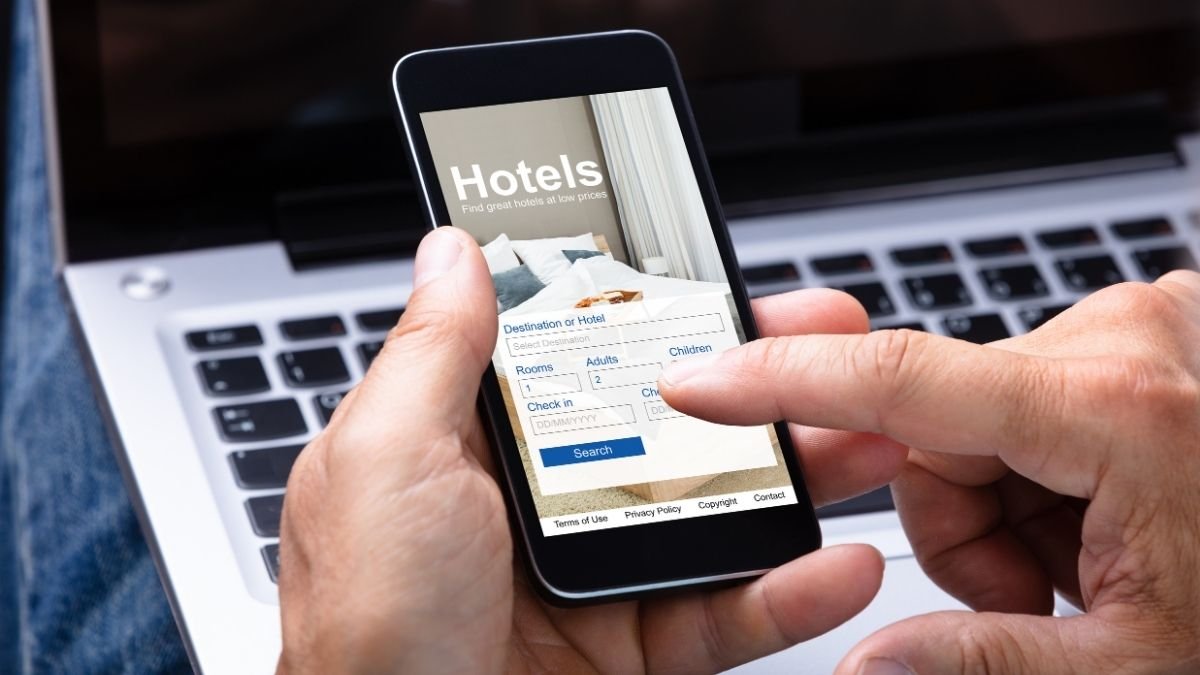
Let me guess your usual booking routine:
- Google “hotels in [destination]”
- Check a few comparison sites
- Book whatever looks like the best deal
- Cross your fingers and hope for an upgrade
Stop right there.
This approach is costing you hundreds (maybe thousands) every year. The real money-saving magic happens when you understand what’s actually driving those prices behind the scenes.
The Psychology Game Hotels Play on Your Brain

Hotels are masters of psychological manipulation. That “$399 crossed out, now $199!” price you see? Pure theater.
Here’s what actually happens:
- They show you an inflated “rack rate” to make the discount look amazing
- They use charm pricing ($199 vs $200) to trigger your bargain-hunting instincts
- They create false urgency with “Only 2 rooms left!” warnings
But you can flip this script.
When you understand these psychological triggers, you can use them to your advantage. More on that in a minute.
The Technology Loopholes That Change Everything
Remember when your mom used to say, “It’s not what you know, it’s who you know”? In travel hacking, it’s more like “It’s not where you are, it’s where the internet thinks you are.”
The VPN Game-Changer
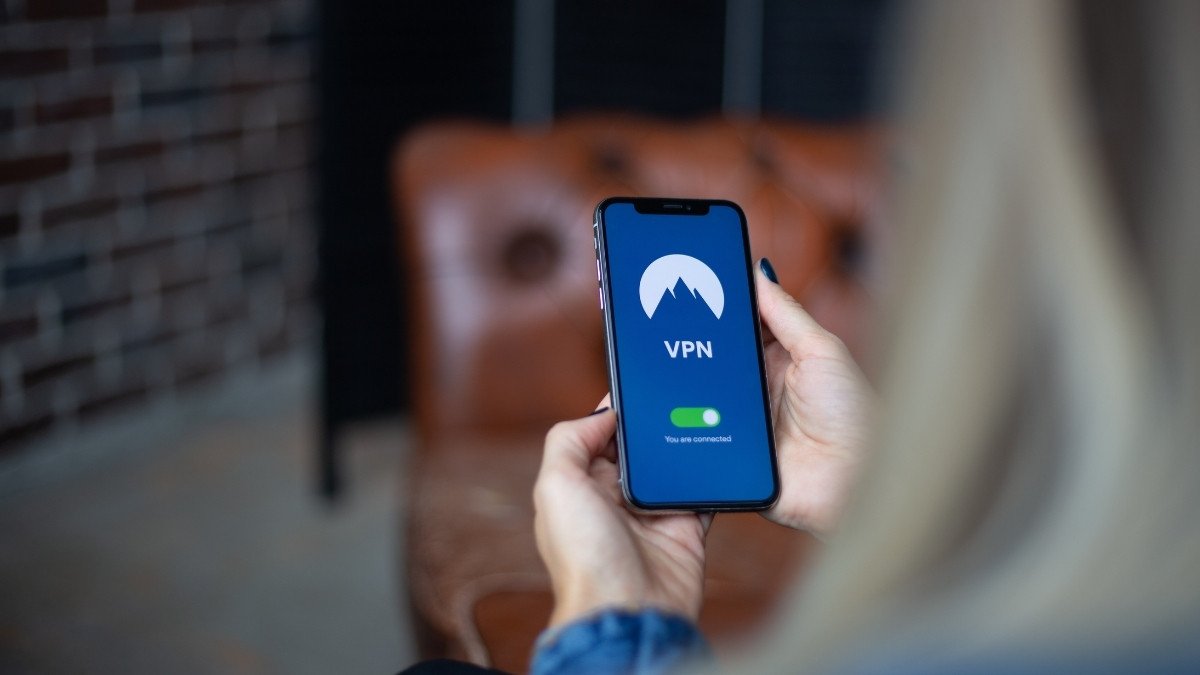
Here’s a wild example: A luxury hotel in Japan showed a rate of $890 when accessed from a US IP address. Switch to a Polish VPN server? Same room, same dates: $394.
That’s a $496 difference just for changing your virtual location.
Why does this work?
Hotels adjust prices based on local purchasing power and competition. Someone booking from Poland probably has a different budget than someone from Beverly Hills. The pricing algorithms are aware of this and adjust accordingly.
The sweet spots for VPN booking:
- Poland (consistently lowest rates globally)
- India (great for luxury properties)
- Japan (surprising discounts for international travelers)
- Eastern European countries
Quick note: This is completely legal – you’re just accessing the same website from different geographic locations.
The AI Tools That Do the Work for You

Manually tracking hotel prices is like trying to count raindrops. Thankfully, some apps do the heavy lifting:
SnapTravel’s WhatsApp Bot:
- Reports 30-50% average savings
- Negotiates directly with hotels using AI
- One user saved 70% on Boston luxury hotels
Pruvo’s Price Monitoring:
- Automatically rebooks you when prices drop
- Claims 40% of reservations see price reductions after booking
- Completely hands-off after setup
Let’s Trip AI:
- 24/7 price monitoring across all platforms
- Sends instant alerts when your target price appears
- Eliminates the need to constantly check rates
The Timing Game: When Minutes Matter
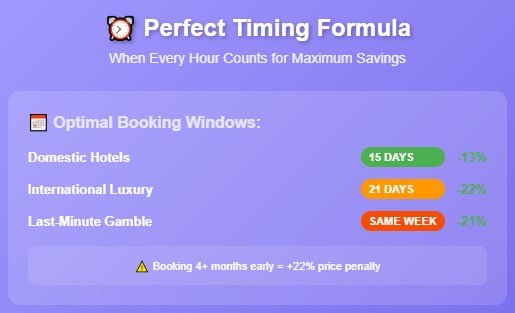
Okay, this is where it gets really interesting. Remember how I mentioned hotels change prices 20 times a day?
That means there are optimal windows when prices are at their lowest.
The 15-Day Sweet Spot
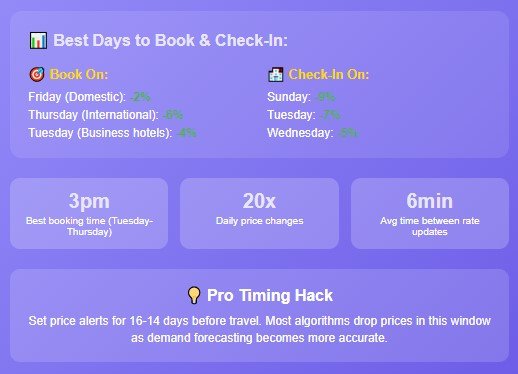
Data from thousands of bookings shows that 15 days before your trip is the golden window. Not too early (when hotels are optimistic about demand), not too late (when inventory gets scarce).
- Domestic hotels: 13% cheaper than booking 4 months ahead
- Luxury properties: 22% savings at the 15-day mark
- International bookings: 18% average savings
Day-of-the-Week Magic
This might surprise you, but Friday is the best day to book domestic hotels (2% advantage), while Thursday wins for international properties (6% savings).
Even better? Sunday check-ins average 9% lower costs across most markets. Why? Business travelers usually arrive Monday-Thursday, leaving Sunday as a lower-demand day.
The Last-Minute Gamble
Here’s where it gets risky but potentially very rewarding. Same-week bookings can deliver massive savings:
- 21% below average for domestic hotels
- 18% for international properties
- But you risk everything being sold out
Pro tip: This strategy works best if you have backup options or flexible travel dates.
The Corporate Hack Almost Nobody Knows

Want to hear something crazy? You can access corporate hotel rates even if you don’t work for a big company.
Here’s how:
Most hotel chains offer “small business” rates that require minimal volume commitments. Sometimes it’s as simple as having a business license (which you can get online for under $100 in most states).
Marriott Bonvoy Business rates:
- Instant 7% discount on all stays
- Minimal volume requirements
- Stack with existing loyalty benefits
Travel Management Company partnerships:
- Access to 25,000+ negotiated rates globally
- No minimum volume commitments
- Leverage collective buying power
Even better? These rates often come with additional perks like free breakfast, WiFi, or late checkout that aren’t included in consumer rates.
The “Overbooking Compensation” Strategy

Here’s something most travelers fear but smart ones exploit: hotel overbooking.
Industry data shows 25% of new hotels experience overbooking issues. But instead of panicking, savvy travelers use this to their advantage.
How it works:
Show up late during peak season when overbooking is most likely. If the hotel can’t accommodate you, they’re legally required to:
- Find you comparable or better accommodations
- Cover the price difference
- Often provide transportation and meal vouchers
Real example: A traveler arriving late at an overbooked Marriott in Paris got upgraded to a luxury boutique hotel worth $300 more per night, plus dinner vouchers and taxi fare – all covered by Marriott.
The key? Stay calm, be polite, and know your rights.
The Psychology Reversal Technique
🧠 Psychology Warfare
Turn Hotel Mind Games in Your Favor
🎭 Common Hotel Psychology Tricks:
🔄 Reversal Techniques & Success Rates:
💬 Proven Negotiation Scripts:
Remember those psychological tricks hotels use on you? Time to turn the tables.
The Premium Anchor Strategy
Instead of asking for the cheapest room, start by asking about premium suites. This establishes a high price anchor in the representative’s mind.
Then say: “That’s a bit out of my budget. What’s your best standard room with potential for an upgrade?”
This approach works because:
- You’ve anchored them to a higher price point
- You’ve shown you understand value (not just looking for cheap)
- You’ve given them a way to “help” you by offering a deal
The Loss Aversion Play
Hotels hate losing money more than they love making extra profit. Use this to your advantage.
If you have loyalty status, try: “I’ve been considering switching to [competitor] because their rates seem more competitive. Can you help me find a reason to stay loyal?”
This frames the conversation around preventing a loss rather than giving you a discount.
The Direct Booking Advantage
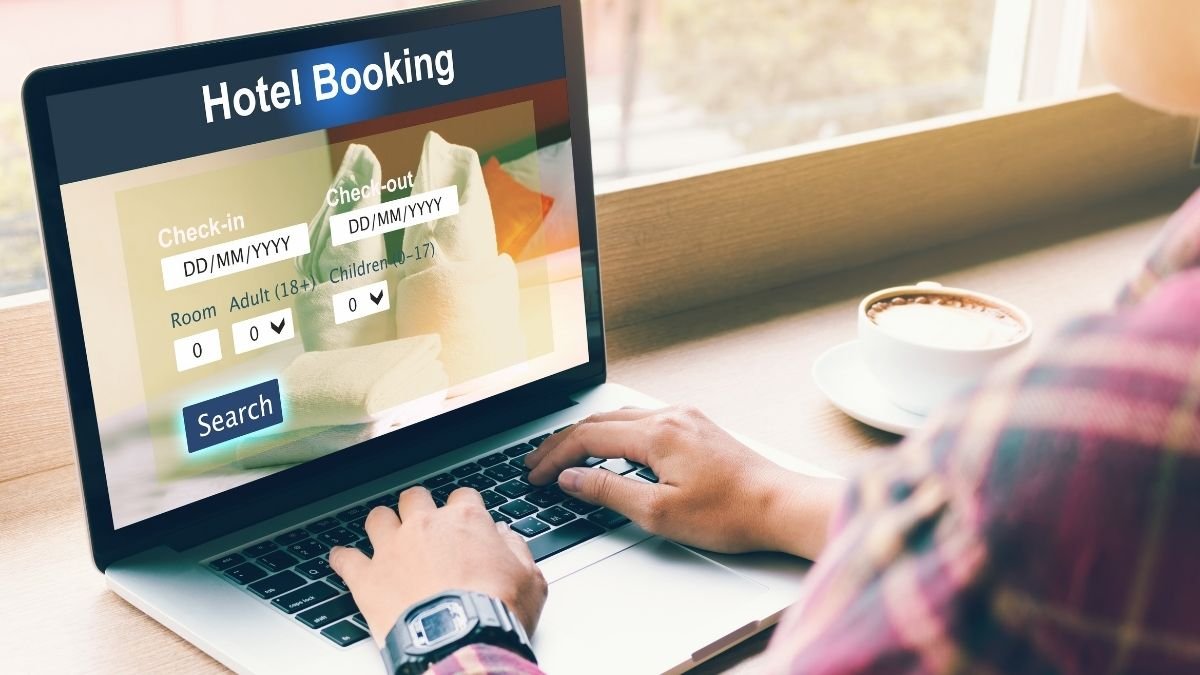
Here’s something booking sites don’t want you to know: hotels often offer better deals when you book directly.
Why? Booking sites charge hotels 15-25% commission. When you book direct, hotels save that money and can pass some savings to you.
The strategy:
- Find the rate on a comparison site
- Call the hotel directly
- Ask them to match or beat the rate
- Mention you’re choosing between them and the booking site
Bonus benefits of direct booking:
- Better upgrade chances
- Loyalty points and status benefits
- More flexible cancellation policies
- Direct relationship with the hotel for special requests
The Seasonal Patterns Most People Miss
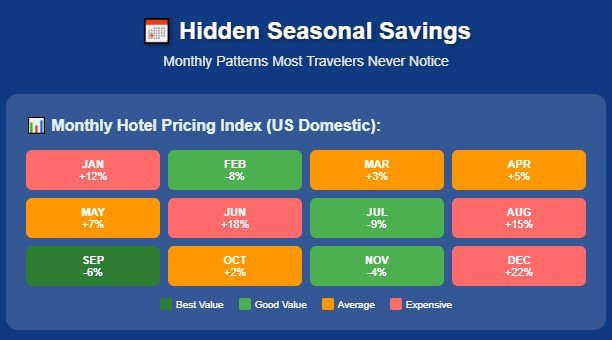
Every destination has hidden seasonal patterns that most travelers completely miss.
September is the magic month for domestic US travel – 6% below average rates because:
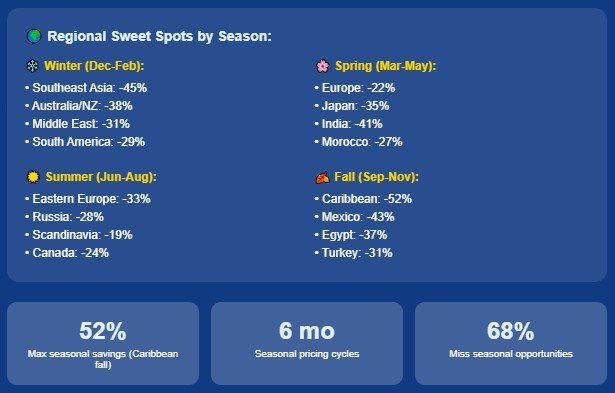
- Kids are back in school (less family travel)
- Summer rush is over
- Hotels are trying to fill gaps before the holiday season
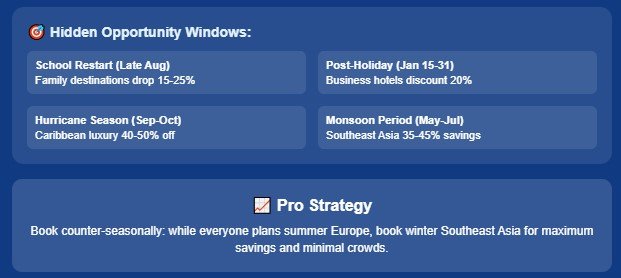
July wins for international bookings with 9% potential savings because:
- Americans are traveling domestically for the summer
- European summer holidays create opportunities in other regions
- Southern hemisphere winter means lower demand
September hotel hack: Book your winter escape destinations (like Southeast Asia or Australia) in September for the following year. You’ll catch early bird pricing before the winter demand kicks in.
The Regional Arbitrage Secret
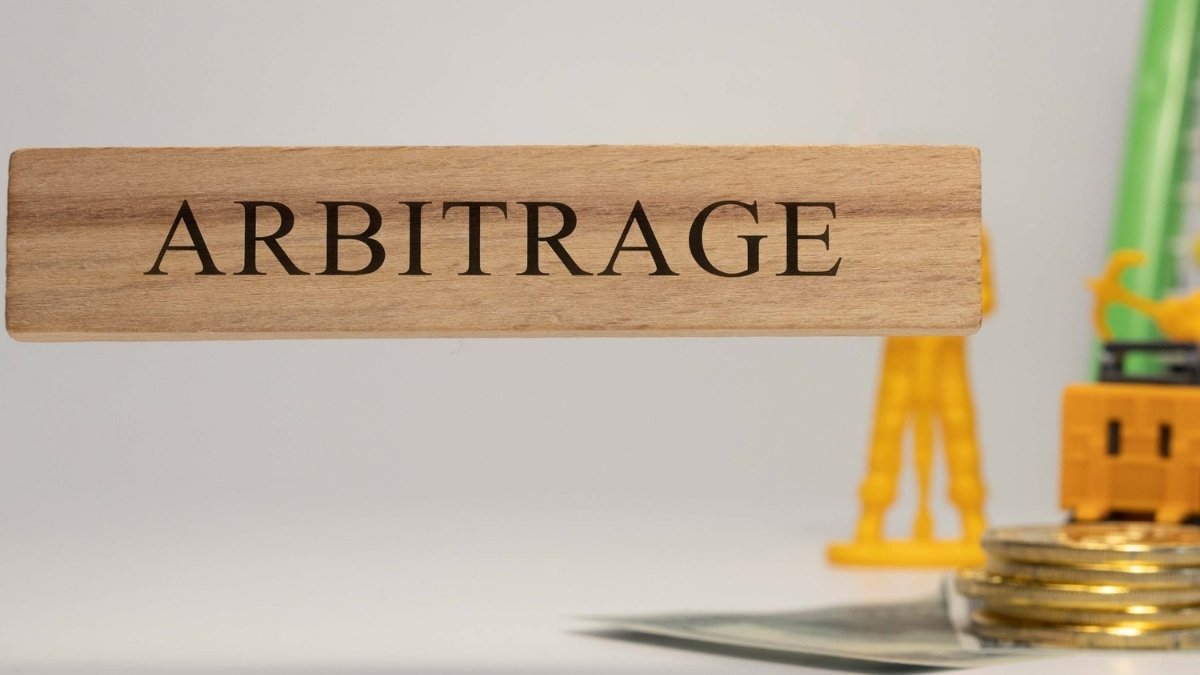
This strategy requires a bit more sophistication, but the payoffs can be enormous.
Different regions have wildly different pricing expectations. A “luxury” hotel rate in Thailand might be considered mid-range in Switzerland.
The arbitrage opportunity:
- Look for international hotel chains in lower-cost countries
- Book luxury brands (Four Seasons, Ritz Carlton) in emerging markets
- Target business hotels during weekend periods in expensive cities
Real example: A Four Seasons in Chiang Mai, Thailand, offers the same luxury experience as one in New York, but for 70% less.
The Technology Stack for Serious Savers

If you’re ready to get serious about this, here’s the tech setup that pro travel hackers use:
Essential Tools:
- VPN Service: NordVPN or Surfshark ($2-5/month)
- Price Tracking: Pruvo or Let’s Trip AI (free)
- Booking Platform: SnapTravel for last-minute deals
- Comparison: Kayak or Trivago for initial research
Advanced Setup:
- Set up price alerts for your most frequent destinations
- Use VPN testing to find optimal booking locations
- Create a spreadsheet to track which strategies work best for you
Monthly time investment: About 30 minutes to set up, then 5 minutes per booking to optimize.
The Mistakes That Kill Your Savings
⚠️ Costly Booking Mistakes
Avoid These Money-Burning Errors
💸 Top 5 Expensive Mistakes & Their Cost:
🔍 Hidden Costs Most People Miss:
✅ Quick Fix Checklist:
Even with all these strategies, most people mess up the execution. Here are the biggest mistakes to avoid:
Mistake #1: Booking Too Early. Don’t get excited and book 6 months ahead. The sweet spot is 15 days for most destinations.
Mistake #2: Ignoring Cancellation Policies. Always book refundable rates when using price-tracking strategies. The flexibility is worth the slight premium.
Mistake #3: Not Clearing Your Cookies. Hotels track your searches and may raise prices if you keep coming back. Use incognito mode or clear cookies between searches.
Mistake #4: Focusing Only on Price A slightly higher rate with free breakfast, WiFi, and parking might actually save you money overall.
Mistake #5: Not Joining Loyalty Programs. Even if you don’t travel often, basic membership is usually free and can provide upgrade opportunities.
The Ethical Line You Shouldn’t Cross

Before we go further, let’s talk about what NOT to do.
Some travel hacking strategies cross ethical or legal lines:
Avoid these risky tactics:
- Fake business registration for corporate rates
- Using stolen or shared corporate codes
- Booking with no intention to travel (for points)
- Excessive credit card churning could impact your credit
Stick to legitimate strategies:
- Geographic price arbitrage through VPNs
- Timing optimization based on public data
- Legitimate business partnerships
- Direct negotiation with hotels
The goal is sustainable savings, not short-term gains that could get you banned from hotels or hurt your credit.
Your Action Plan: Start Saving This Week
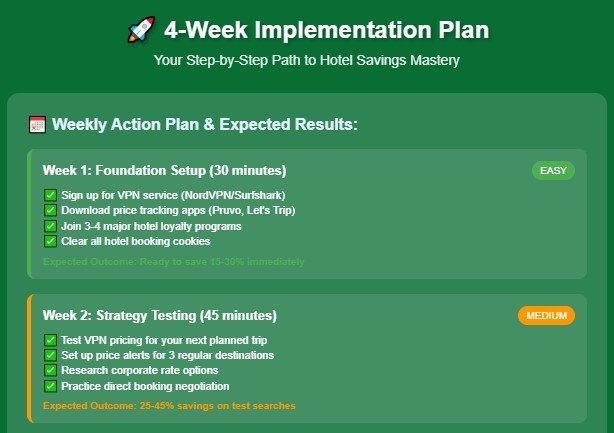
Ready to put this into practice? Here’s your step-by-step game plan:
Week 1: Setup
- Sign up for a VPN service
- Download price tracking apps (Pruvo, Let’s Trip)
- Join loyalty programs for 3-4 major hotel chains
- Clear all hotel booking cookies from your browser
Week 2: Research
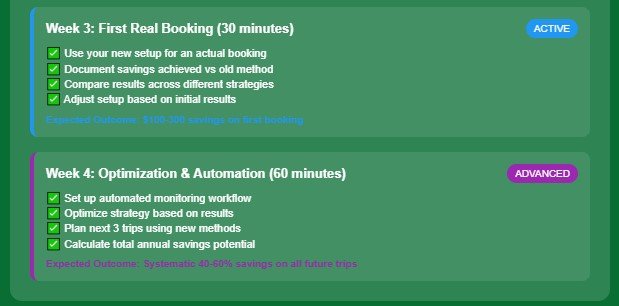
- Test VPN pricing for your next planned trip
- Set up price alerts for destinations you visit regularly
- Research corporate rate options if you have a business
Week 3: First Booking
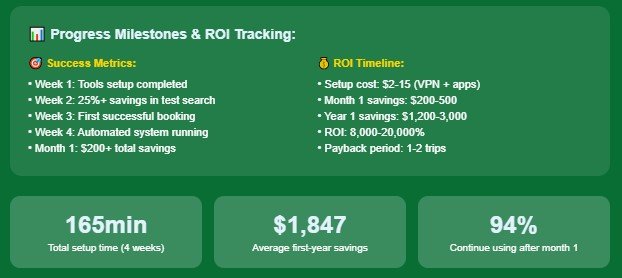
- Use your new setup to book your next trip
- Document what strategies worked best
- Compare your savings to what you would have paid before

Ongoing: Optimization
- Track which strategies work best for your travel patterns
- Refine your approach based on results
- Share successful tactics (and failures) with other travelers
The Real Secret Sauce

After all these strategies and tactics, here’s the real secret that separates amateur bargain hunters from professional travel hackers:
Consistency and a systematic approach beat one-off tricks every time.
You’re not looking for the perfect deal that saves you $500 once. You’re building a system that saves you $100-200 on every single trip for the rest of your life.
Do the math: If you take 4 trips per year and save $150 each time, that’s $600 annually. Over 20 years? $12,000 in savings.
Plus all those free upgrades, better rooms, and luxury experiences you wouldn’t have tried otherwise.
The Bottom Line
The hotel industry has built sophisticated systems to maximize its revenue. But those same systems create opportunities for travelers who understand how the game is played.
You don’t need to be a tech genius or spend hours studying airline route maps. You just need to understand a few key principles and apply them consistently.
Start with one strategy. Maybe it’s VPN testing for your next international trip. Or setting up price alerts for a destination you visit regularly.
Get comfortable with that approach, then add the next layer.
Before you know it, you’ll be that person posting Instagram photos from luxury resorts while your friends wonder how you afford such amazing trips on a normal salary.
Your turn: Pick one strategy from this guide and test it on your next booking. Track your savings and let me know how it works out.
The five-star lifestyle is waiting. You just need to know which buttons to push.
What’s been your biggest hotel booking win (or fail)? Share your story in the comments – I love hearing about real-world results from these strategies.



